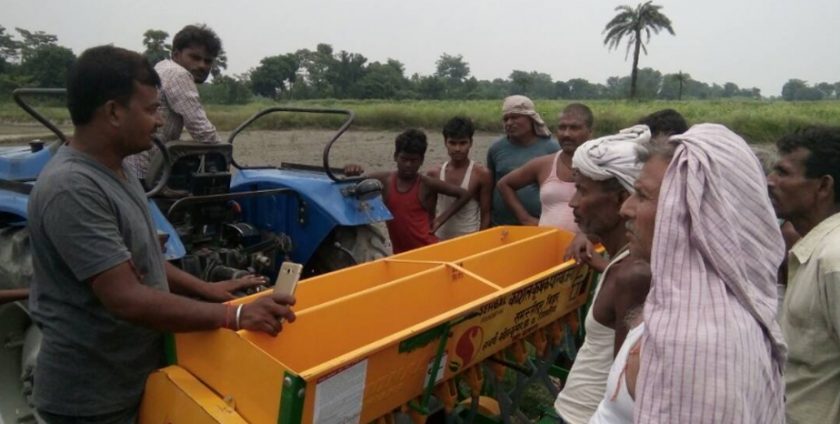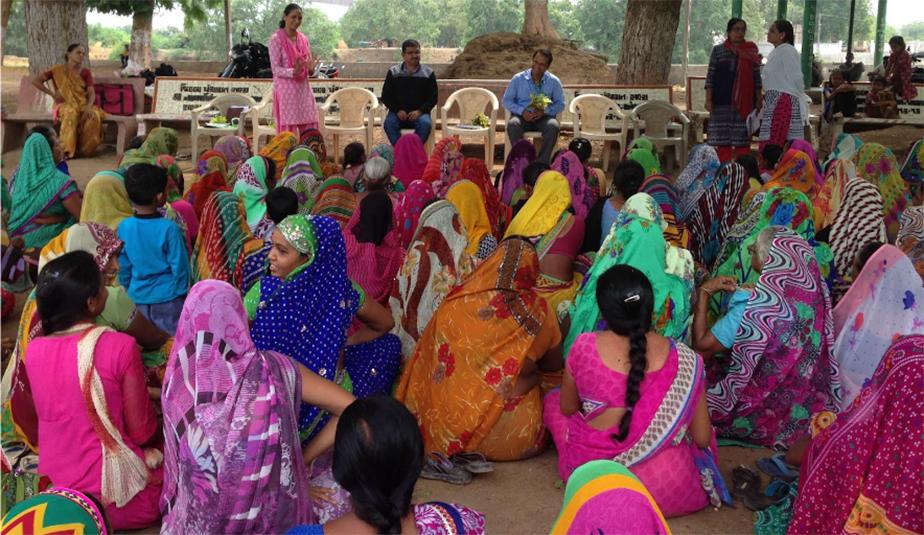
Sustainable development initiatives are becoming increasingly crucial in our quest to address the pressing challenges of poverty, environmental degradation, and social inequality. These initiatives aim to meet the needs of the present without compromising the ability of future generations to meet their own needs. At the Foundation for Development Initiatives (FDI), we have dedicated over two decades to implementing sustainable development initiatives that foster community growth and resilience. Explore what sustainable development initiatives are, their importance, and how they contribute to the growth and well-being of communities.
Understanding Sustainable Development Initiatives
Sustainable development initiatives are projects and programs designed to achieve long-term economic, social, and environmental sustainability. These initiatives focus on creating solutions that balance the needs of people and the planet, ensuring that progress today does not come at the expense of future generations. The core principles of sustainable development include:
- Environmental Protection: Ensuring that natural resources are conserved and ecosystems are preserved.
- Social Equity: Promoting fairness and equality, ensuring that all members of society have access to opportunities and resources.
- Economic Viability: Creating economic opportunities that are sustainable and do not lead to the depletion of resources.
Sustainable development initiatives often align with the United Nations’ Sustainable Development Goals (SDGs), a global framework adopted in 2015 to address a wide range of issues from poverty and hunger to climate action and clean energy.
Key Components of Sustainable Development Initiatives
- Environmental Sustainability: Initiatives that focus on environmental sustainability aim to protect and restore ecosystems, reduce pollution, and promote the sustainable use of natural resources. This includes projects like reforestation, renewable energy development, and water conservation.
- Social Sustainability: Social sustainability initiatives work towards improving the quality of life for all community members, with a particular focus on marginalized and vulnerable populations. These initiatives might include access to education, healthcare, and social services, as well as efforts to promote gender equality and social inclusion.
- Economic Sustainability: Economic sustainability involves creating stable and long-term economic opportunities that provide livelihoods without depleting resources. This can include initiatives such as supporting small businesses, promoting sustainable agriculture, and developing skills training programs.
The Importance of Sustainable Development Initiatives
Sustainable development initiatives are essential for several reasons:
- Long-Term Benefits: Unlike short-term projects that provide immediate but temporary relief, sustainable development initiatives aim for long-term benefits. They create enduring solutions that continue to provide benefits well into the future.
- Resource Conservation: By focusing on the sustainable use of resources, these initiatives help conserve vital natural resources for future generations. This is crucial in a world facing climate change, deforestation, and other environmental challenges.
- Community Resilience: Sustainable development initiatives strengthen community resilience by addressing the root causes of poverty and inequality. This helps communities withstand economic, social, and environmental shocks.
- Empowerment and Ownership: These initiatives often involve the active participation of community members, fostering a sense of ownership and empowerment. When communities are involved in the planning and implementation of projects, they are more likely to be committed to their success and sustainability.
- Holistic Approach: Sustainable development initiatives take a holistic approach, addressing multiple interrelated issues simultaneously. This leads to more comprehensive and effective solutions that benefit the community as a whole.
How Sustainable Development Initiatives Help in Community Growth?
1. Economic Growth and Livelihoods
One of the primary ways sustainable development initiatives foster community growth is by creating economic opportunities and improving livelihoods. For instance, FDI’s programs often include vocational training and support for small businesses. By equipping community members with skills and resources, these initiatives enable individuals to secure stable employment and generate income.
For example, in our agricultural development projects, we introduce sustainable farming techniques that increase crop yields and reduce dependency on chemical inputs. Farmers are trained in organic farming, agroforestry, crop residue management, direct seeding of rice (DSR) and water-efficient irrigation methods. These practices not only enhance productivity but also protect the environment, leading to more sustainable livelihoods.
2. Improved Health and Well-Being
Health is a critical component of sustainable development. Initiatives that focus on improving healthcare access, sanitation, and nutrition have profound impacts on community growth. The health initiatives include building clinics, providing vaccinations, and training local health workers. These efforts reduce disease prevalence, improve maternal and child health, and increase life expectancy.
Additionally, access to clean water and proper sanitation is essential for preventing waterborne diseases. The water and sanitation projects ensure that communities have reliable access to safe drinking water and hygienic facilities. This not only improves health outcomes but also enhances productivity, as healthy individuals can work and childrens can attend school more regularly.
3. Education and Skill Development
Education is a cornerstone of sustainable development. Initiatives that focus on improving access to quality education and skill development empower individuals and drive community growth. Education Development programs generally include building schools, training teachers, and providing scholarships. Investing in education enables children and adults to acquire knowledge and skills that open up new opportunities.
Moreover, skill development programs tailored to local economic needs help bridge the gap between education and employment. For instance, training programs in sectors like renewable energy, information technology, and sustainable agriculture equip community members with the skills needed for emerging job markets.
4. Environmental Stewardship
Protecting the environment and addressing climate change are integral to sustainable development. Initiatives that focus on reforestation, waste management, renewable energy, and sustainable land use help communities mitigate and adapt to environmental challenges.
For example, most of the reforestation projects not only combat deforestation but also provide communities with resources like timber, fruits, and medicinal plants. Renewable energy projects, such as installing solar panels, reduce reliance on fossil fuels and provide communities with clean, affordable energy. These initiatives enhance environmental sustainability while creating economic and social benefits.
5. Social Inclusion and Equity
Sustainable development initiatives strive to create inclusive communities where all members have equal access to opportunities and resources. This involves addressing social inequalities and promoting the rights of marginalized groups. FDI’s initiatives often include programs aimed at empowering women, youth, and minority groups.
For instance, women’s empowerment programs focus on enhancing women’s economic opportunities, improving access to education and healthcare, and promoting gender equality. By addressing the specific needs and challenges faced by women, these programs contribute to more equitable and resilient communities.
6. Community Empowerment and Participation
Community participation is a key element of sustainable development. When community members are actively involved in the planning, implementation, and monitoring of initiatives, they are more invested in their success. This participatory approach fosters a sense of ownership and ensures that projects are tailored to the actual needs of the community.
Approach to community empowerment includes conducting needs assessments, organizing community meetings, and involving local leaders in decision-making processes. Giving community members a voice ensures that the initiatives are relevant, effective, and sustainable.
Case Studies: Sustainable Development Initiatives in Action
1. Renewable Energy Project in Rural Villages
In a rural village where electricity was scarce, FDI implemented a renewable energy project to provide sustainable power solutions. Solar panels were installed on community buildings, and residents were trained in their maintenance. This initiative not only provided a reliable source of electricity but also reduced the community’s reliance on expensive and polluting fossil fuels.
With access to electricity, local businesses flourished, and students could study after dark, improving educational outcomes. The project also created jobs for local technicians who maintained the solar panels, contributing to economic growth and sustainability.
2. Sustainable Agriculture Initiative
In another community, FDI introduced a sustainable agriculture initiative to address food insecurity and environmental degradation. Farmers were trained in organic farming techniques, crop diversification, and soil conservation methods. Demonstration plots were established to showcase the benefits of these practices.
As a result, farmers experienced increased crop yields and reduced costs associated with chemical fertilizers and pesticides. The initiative also promoted biodiversity and improved soil health, leading to more resilient agricultural systems. The success of the project inspired neighboring communities to adopt similar practices, amplifying the impact.
3. Women’s Empowerment and Livelihood Program

FDI’s women’s empowerment program in a marginalized community focused on enhancing economic opportunities for women. Training sessions in entrepreneurship, financial literacy, and vocational skills were provided. Women received support to start small businesses, ranging from handicrafts to food processing.
The program not only improved women’s incomes but also boosted their confidence and social status. As women became economically empowered, they invested in their children’s education and contributed to community development. The ripple effects of the program led to greater gender equality and social cohesion.
Conclusion
Sustainable development initiatives are vital for fostering community growth and resilience. By balancing environmental protection, social equity, and economic viability, these initiatives create lasting solutions that benefit both current and future generations. At the Foundation for Development Initiatives, we are committed to implementing sustainable development projects that empower communities, improve livelihoods, and protect the environment.
Through our focus on community participation, we ensure that our initiatives are relevant, effective, and sustainable. By involving community members in every stage of the development process, we foster a sense of ownership and empowerment that drives long-term success. As we continue our work, we remain dedicated to building a more equitable and sustainable world for all, where every community has the opportunity to thrive.